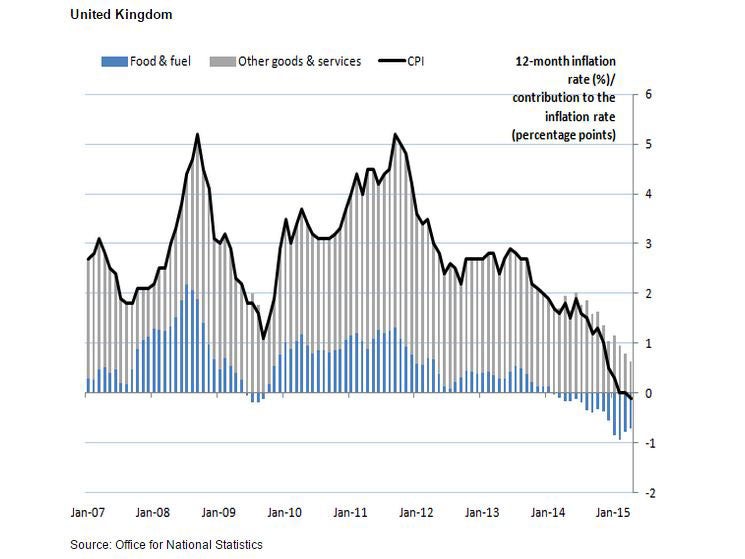What is deflation - and what does it mean for you?
How you will feel the new figures in your pocket

What's happened?
Inflation dipped below zero for the first time since 1960. The cost of goods fell 0.1% in March after sitting flat at zero in February - which means food, alcohol and clothing was cheaper in March than it was a year ago.
Over the last year, food prices have fallen by 3.0% and prices of motor fuels fell by 12.3%, according to the ONS.
A cheap basket of shopping is good news, isn’t it?
George Osborne has been telling journalists that:
Economists have welcomed the dip, because it gives households’ shopping budget a boost that should encourage spending and help the UK economy grow. This is especially good because wage growth has slowed to 1.8 per cent.
An early Easter - in March rather than April - is thought the be reason transport suffered a dip. The airlines didn't put their prices up in time to capitalise on Easter holidays.
So we're officially in deflation.
Yes - but economists say this isn't 1930s deflation or Japan deflation, where prices will keep falling.
Many economists prefer to call it negative inflation, because prices are expected to rebound. We're already seeing the price of fuel going up. And if you include housing costs, the rate of inflation is actually 0.9%.
What would real deflation mean?
If consumers and businesses expect inflation to stay low, they might put off spending and investment.
What’s more, the Bank of England might cut interest rates – already on hold at 0.5 per cent since 2009 – further to get inflation up to the target 2 per cent. This would be bad news for savers.
The consensus is that we are going through a period of ‘good inflation’ as a result of falling oil prices, rather than domestic demand.
Mark Carney, governor of the Bank of England, said a dip into deflation was expected, but that we should be moving towards 2 per cent inflation towards the end of the year. It doesn’t look like this is the start of persistent deflation of the sort which which, during the Great Depression, resulted in skyrocketing unemployment.
Join our commenting forum
Join thought-provoking conversations, follow other Independent readers and see their replies
Comments